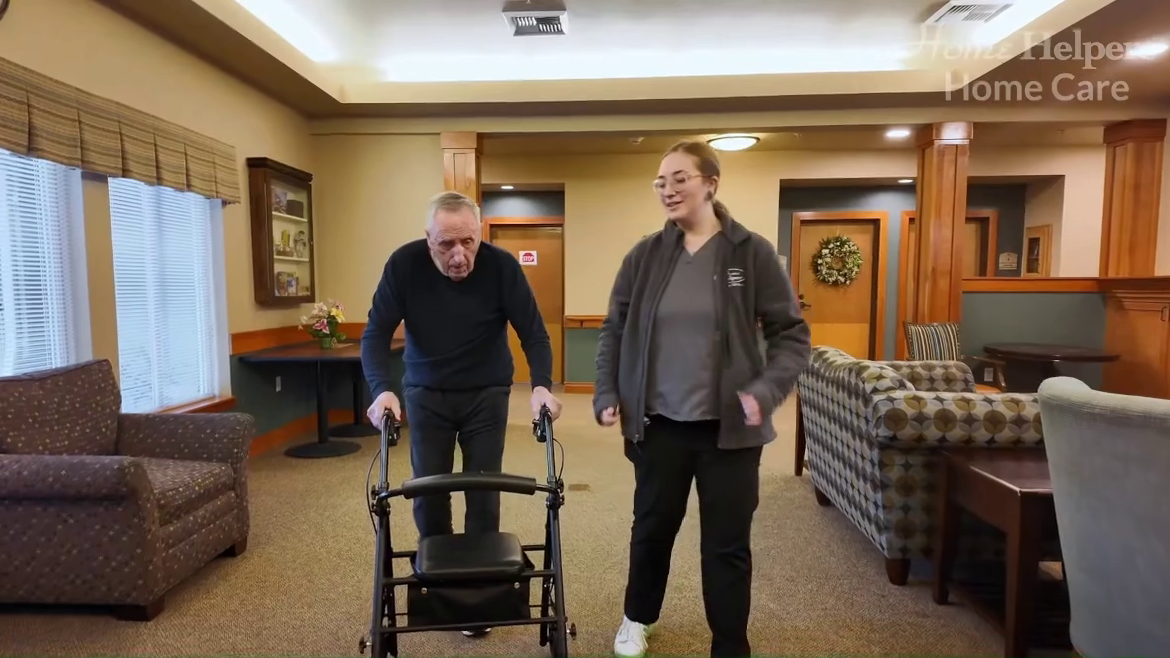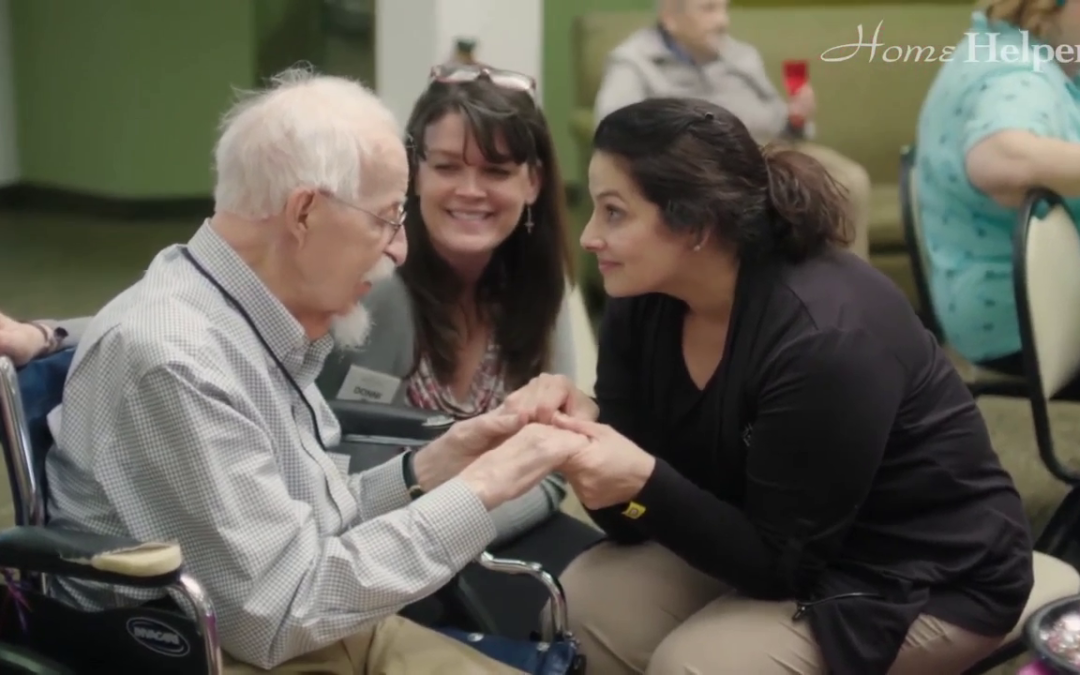Author: Jonathan Marsh, Owner of Home Helpers Home Care of Bradenton

Transitioning an older adult to an assisted living facility can feel overwhelming. This adjustment often causes stress for the individual and their loved ones. This change brings more than a new address; it’s a life adjustment that touches emotions, daily habits, and relationships.
When a loved one moves to an assisted living community, it truly is a full transition. They must adjust to the new environment, meet staff, and experience the services and social life in senior living. For seniors who rely on caregivers, having a plan in place is crucial. Adding the caregiver’s support during the transition often leads to a more comfortable adjustment.
Important: This article focuses primarily on assisted living. However, our recommendations also support transitions to retirement communities as well as skilled nursing and other care facilities.
Why a Familiar Face Makes a Difference in the Transition to Assisted Living
The National Institute on Aging finds that transitioning to assisted living can cause emotional challenges. Many people experience feelings of anxiety, loss, and even loneliness. During this time, the presence of a familiar face, such as a trusted caregiver, can be invaluable.
A caregiver’s familiar presence creates a comforting link to the senior’s past. This stability helps ensure consistency in their daily care. A family member or caregiver’s presence provides emotional support in the initial days at an assisted living facility. This comfort can ease the stress and confusion that are common in life transitions.
In addition to offering a sense of security, caregivers play a critical role in providing personalized care. Knowing the senior’s daily routines and personal preferences allows them to guide the senior into a steady routine. This comforting rhythm eases the transition into their new living space.
Daily visits from a trusted caregiver help seniors in assisted living communities adjust more easily and with less stress.

The Benefits of a Familiar Caregiver’s Daily Visits
A caregiver’s role during the early phase of a move to assisted living reaches far beyond mere companionship. Daily visits from a caregiver during this period offer several key benefits:
Emotional Support and Familiarity
Moving into a new living environment can feel overwhelming and lonely. A caregiver’s presence provides an essential support system. They offer companionship and emotional reassurance to the senior during this significant life change.
With a familiar face around, seniors feel less isolated. Knowing their emotional needs, caregivers provide the support needed for a positive outlook each day. This relationship becomes especially important if the senior feels anxious or out of place.
Advocacy for Personalized Care Needs
While assisted living staff focus on seniors’ well-being, caregivers who understand them can serve as advocates. A trusted caregiver’s advocacy aligns the senior’s routines with the facility’s levels of care.
In other words, they help communicate each senior’s preferences and unique needs. A caregiver who knows a senior’s care plan can inform assisted living staff about key routines and health concerns. This information helps support activities of daily living that improve the senior’s quality of life.
Continued Daily Routines
Many older adults find comfort in routine, and maintaining familiar daily routines is a cornerstone of a successful transition. Caregivers support routines in meal preferences, leisure activities, and bedtimes, helping seniors feel more comfortable. Over time, the familiarity of daily routines becomes a source of stability.
Encouragement of Social Engagement
By encouraging engagement with other residents, caregivers help clients build friendships and connections in their senior living environment. Many assisted living facilities offer social activities, but some seniors may hesitate to join in. With caregiver support, seniors may feel more inclined to join social activities with other assisted living residents. This engagement improves their quality of life in senior living.
Reduced Stress for Family Members
Family members may find the process of moving an older adult into assisted living emotionally challenging. Knowing a trusted caregiver is present eases family stress, providing peace of mind that their loved one is well-cared for. Support groups can also benefit families, helping them express feelings and reassuring them they aren’t alone.
Implementing a Gradual, Structured Plan for Transition Support
For a smoother transition, a gradual, structured plan with daily visits over the first two to four weeks is ideal. This phased approach allows the caregiver to support the senior’s adaptation process in a balanced, effective way.
1.Help with the Initial Adjustment
During the first week, daily visits provide consistent support, assisting the senior in familiarizing themselves with their new surroundings. This reliable presence helps to reduce anxiety and ease the discomfort that often comes with significant changes.
2. Encourage Independence and Connection
During the second and third weeks, caregivers focus on getting seniors involved in social activities. These interactions help them connect with others in the assisted living community. As caregivers step back, seniors can gradually embrace more independence and feel at home in the senior living community.
3. Evaluate and Adjust
By the fourth week, the caregiver can assess the senior’s progress, adjusting the frequency of visits as needed. If the senior shows signs of comfort and independence, the caregiver might reduce number of visits per week. This ensures that support is available while encouraging continued adaptation to the new environment.
This structured approach helps ensure a supportive, personalized transition process. It offers seniors familiar support, building their confidence and fostering independence in the community.
Home Helpers Home Care of Bradenton: Supporting Your Family’s Transition to Assisted Living
At Home Helpers Home Care of Bradenton, we understand that the transition to assisted living isn’t easy. We support seniors and their families every step of the way. Our caregivers help seniors transition smoothly from in-home care services to assisted living care services. Our caregivers focus on personalized care, advocacy, and emotional support to ease the transition and enrich quality of life.
We support seniors in all aspects of their journey. We offer in-home care in Bradenton, FL, and surrounding areas of Manatee County. Our care provides peace of mind by focusing on daily routines, wellness, and emotional support.
If you’re planning a move to assisted living, our team is here to guide you. We help you navigate the transition with care and understanding.
If you’d like to discuss how our services can support your loved one, please reach out to us at (941) 499-5946. You can also visit our website at https://homehelpershomecare.com/bradenton. Together, we can create a support plan that ensures a comfortable, fulfilling transition to assisted living.


